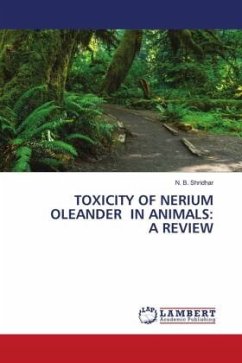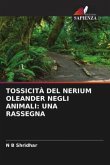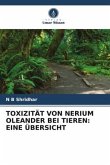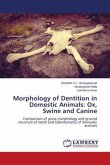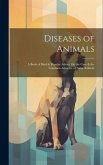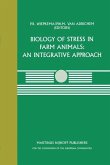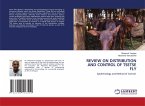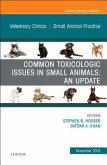Nerium oleander is a plant that is commonly seen in gardens and public spaces. N. oleander was originally found in subtropical Asia, but it is now spread all over the world, including the United States, Australia, China, and Middle Eastern nations. It is also an attractive plant that is popular in tropical and subtropical climates and is becoming more frequent in temperate regions. Poisoning from oleander can occur in both animals and humans. Poisoning in animals is documented on an infrequent basis, particularly as a result of the consumption of poisonous cardiac glycoside-containing leaves (primarily oleandrin). The toxic effects of plants or their active alkaloids caused infiltration of cells with hemorrhage and severe negative changes in the lungs, infiltration of inflammatory cells into portal spaces with scattered necrosis of hepatocytes in the liver, and cardiac toxicity of the plant in the heart, which caused varying degrees of hemorrhage, myocardial degeneration, and necrosis. In electrocardiographic recordings, it also caused arrhythmia, sinus bradycardia, and a prolonged P-R interval. Oleandrin was detected in blood, serum, liver, heart, milk, and cheese samples.
Bitte wählen Sie Ihr Anliegen aus.
Rechnungen
Retourenschein anfordern
Bestellstatus
Storno

